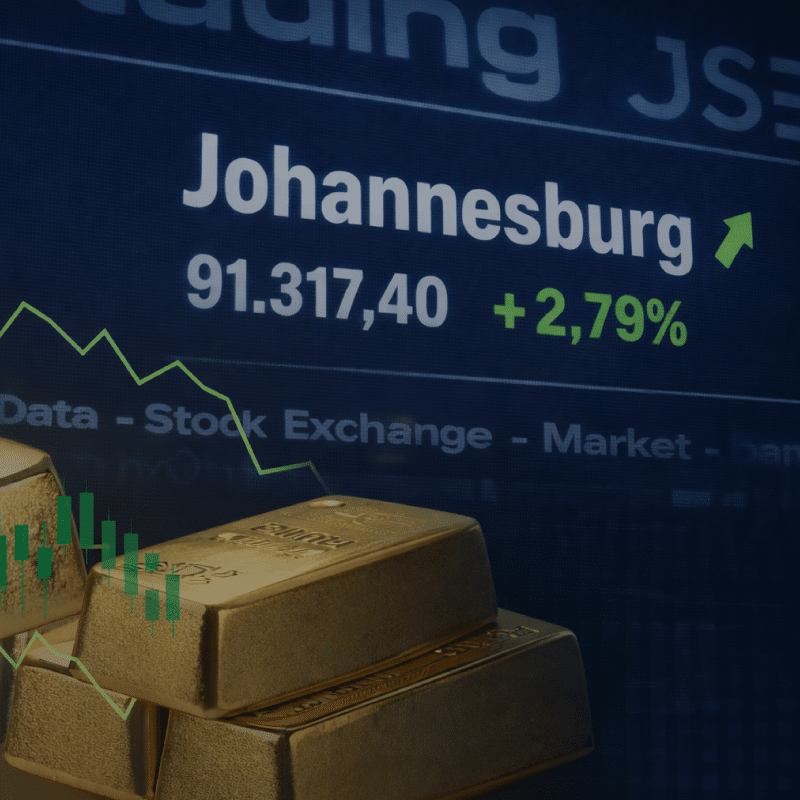Anchor’s coffee table economics note by Casey Delport will be distributed intermittently and is a collection of Casey’s opinions on key economic factors and events shaping markets globally and in South Africa (SA). It is essentially Casey’s thoughts and perspectives on the multiple dynamics at play in the global and local economy.
Executive summary
In this week’s edition, we highlight the following:
- Good news is good news – unless, that is, you are Chancellor of the Exchequer, Jeremy Hunt. Whilst the UK economy has faced multiple idiosyncratic pressures in recent years, lately, political-economic events and sets of positive economic data points to a less bitter UK economy than was predicted only a few months ago. Unfortunately, whilst the rest of the economy is cheering on, one person who may not be quite as jolly is Hunt, who is in the middle of a battle with some of the UK’s largest and most powerful unions, and whose arguments for fiscal restraint are quickly losing traction.
- Global inflation woes continue … if only we had a crystal ball. It would be an understatement to say that forecasting inflation has been problematic over the past year or two or three. Habitual underestimation of inflation has been commonplace amongst governments, central banks and private sector forecasters alike. Overall, however, investors are starting to brace for more prolonged inflation. Opposing forces of China’s reopening and weaker global growth could offset inflationary pressures, yet this interplay (among a host of other factors) remains to be seen.
- Overall, SA’s 2023 National Budget installed a sense of policy continuity in difficult fiscal and socio-economic times for the country, which, in turn, will be viewed positively by financial markets. In instances such as these, no ‘bad news’ is, in fact, good news. Nonetheless, investors will naturally remain concerned about the numerous downside risks to SA’s economic growth trajectory amidst record loadshedding, a less supportive global economic backdrop, and an upside risk to spending on social grants, wages and state-owned enterprises (SOE) support.
- What in the greylisting? SA will find out on 24 February 2023 (in the late afternoon) whether enough progress has been made to avoid being placed on the Financial Action Task Force’s (FATF) list of jurisdictions under enhanced monitoring (i.e., the grey-list). Our baseline view remains that SA will likely be greylisted, although there is a slight chance that the country can get a reprieve for another year.
The UK economy: A sweeter cup of tea than initially expected?
Over the past week or so, two notable developments may (in theory at least) improve the mighty island nation’s economic fortunes over the longer term. Both developments relate to Brexit. The first is that the UK and the EU may have finally reached an agreement on their dispute over the Northern Ireland Protocol (the trading arrangement negotiated during Brexit which allows goods to be transported across the Irish land border without the need for checks) – a key sticking point in the negotiations. The second is that the resignation of Scottish National Party (SNP) leader Nicola Sturgeon may stymie any further attempt on the part of Scotland to break free from the rest of the UK to re-join the EU. Regarding the Northern Ireland Protocol, the agreement is likely to help boost regional trade. At the same time, on the export side, it could ease the flow of goods for those exporters to Northern Ireland that have had to cope with checks on goods going across the Irish Sea. On the import side, it could aid the recipients of goods in Northern Ireland who have struggled with supplies of some products since the UK left the EU. However, whether this will help achieve the much-desired trade deal with the US remains to be seen. In short, trying to appease the concerns the US raised when former UK Prime Minister Boris Johnson threatened to rip up the protocol amid the initial Brexit negotiations will likely not yield a trade deal on its own. This does not imply that sorting the protocol is without merit, just that it seems unlikely to have any significant trade benefits or benefits to the pound.
On to the second development – the resignation of SNP leader Sturgeon. Whilst the soul of the average Scot might still yearn towards the likes of William Wallace and the eternal search for independence from the British (spirit of the Braveheart indeed), it has increasingly appeared that Scotland’s attempts to engineer a second referendum on leaving the UK, after the failed attempt in 2014, are proving fruitless. Furthermore, recent opinion polls have suggested that support for Scottish independence has faded amid the general Brexit noise. Overall, it is clear that Brexit has been an even bigger disaster for the UK economy than initially envisaged at the time of the 2016 referendum. For instance, the alleged cost of Brexit, which Bank of England (BoE) member Jonathan Haskell put at GBP1,000/person recently, is more than what the UK Treasury had warned about in the 2016 campaign – even under the harshest of Brexit scenarios that did not include the free trade deal with the EU which the UK eventually managed to secure. In addition, UK investment has stalled entirely since 2016. While other reasons exist for this (notably the pandemic), the same investment slump has not been seen in other major developed nations.
There is light, however, at the end of the proverbial Brexit tunnel. According to the S&P Global/CIPS UK Composite Purchasing Manager’s Index ([PMI] a key measure of economic activity), the UK economy is not contracting but is expanding – and at a decent rate. Then there is public finance data, suggesting that households and businesses are doing better than expected (i.e., paying more in taxes) and that this year’s budget deficit might not be as high as the Office for Budget Responsibility had initially forecast. Nonetheless, it is worth noting a sense of caution – public finances data is especially volatile around this time of year. So, whilst it may be too early to conclude that the UK will avoid a recession, it is not entirely outside the realm of possibility either.
Read more about the UK Economy here.
The bottom line
Whilst the UK economy has faced multiple idiosyncratic pressures over the past few years, recent political-economic events and the latest sets of positive economic data point to a less bitter economy than was predicted only a few months ago. Whilst the rest of the economy is cheering on, one person who may not be quite as jolly is Chancellor Jeremy Hunt, who is right in the middle of a battle with some of the UK’s largest and most powerful unions in which he has argued against double-digit pay rises for nurses, doctors, rail guards and so on. The idea that the UK could not afford these public sector pay increases is considerably weaker in the face of these latest events and positive data. The chancellor’s other rationale for keeping public sector pay rises down is that inflation remains a clear and present threat to the economy. Then again, the BoE has signalled that it is now very near the peak for interest rates, and January inflation rose by slightly less than expected. Good news is good news – unless, that is, you are Jeremy Hunt.
Global inflation woes – if only we had a crystal ball
Brent crude prices have once again increased over recent weeks, mainly because a top Russian official recently stated that the country would cut its oil production by 500,000 barrels a day in March. Russia is desperately using whatever is left in its increasingly limited arsenal in retaliation against Western sanctions that have been placed on it due to its ongoing war on Ukraine. This latest move by Russia adds to the 2mn bbl/day supply cuts announced by the Organization of the Petroleum Exporting Countries (OPEC) and its oil-exporting allies (OPEC+) in October 2022. However, earlier this month, the OPEC+ Joint Ministerial Monitoring Committee did not recommend changing the group’s current production policy. Indeed, it appears hell-bent on keeping supply as restricted as possible. This means the global oil market will likely tighten in the second half of this year. Overall, we believe that, broadly, oil price movements will remain volatile and elevated on the back of spillover effects around the Russia-Ukraine war and as demand from China lifts. More so, the price of synthetic fuels might not meaningfully drop across the different African markets, thus suggesting upward sticky inflation or a slower pace of disinflation across the African continent.
It would be an understatement to say that forecasting inflation has been difficult over the past year, or two, or three for that matter. Habitual underestimation of inflation has been commonplace amongst governments, central banks, and private sector forecasters alike. Most now argue for inflation to fall, but could they be proven wrong again? Only time will tell. From a longer-term perspective, the broader push towards deglobalisation has been around since before the pandemic, perhaps even as far back as the global financial crisis (GFC) of 2008/2009. This, too, has been put on proverbial steroids by supply chain problems and supply security concerns after the pandemic and, of course, Russia’s invasion of Ukraine. These pressures will remain well after the recent price surge has washed out. Hence, in both a short-term and a long-term context, there are reasons to fear that inflation will not decline in the way that central banks expect, and many will have to accept that their 2% inflation targets are now out of reach on anything other than a temporary basis.
The bottom line
Investors across the board are starting to brace for more prolonged inflation. The US Federal Reserve (Fed) has indicated that more restrictive monetary policy is on the cards amid solid employment gains. In Europe, while inflation has declined, it is still far above the 2% target. Across the euro area, inflation is estimated to have reached 8.5% in January. At the same time, some countries have managed to tamp down on inflation. Slower growth, cheaper import costs, and foreign exchange policy are some factors keeping inflation subdued. If we glance through the IMF’s proverbial glass ball, the fund points towards around 84% of countries globally having lower inflation than last year, albeit remaining at higher levels than before. By 2024, headline and core inflation are projected to remain above pre-pandemic levels at 4.1%. Opposing forces of China’s reopening and weaker global growth could offset inflationary pressures, yet this interplay – among a host of other factors – remains to be seen.
SA Budget 2023: Policy continuity in difficult times, positive for financial markets
National Treasury’s (NT’s) 2023/2024 Budget, tabled in Parliament on Wednesday (22 February) by SA’s Minister of Finance Enoch Godongwana, turned out to be a reasonably neutral affair followed by a somewhat positive, albeit slightly muted, market reaction. Overall, the primary fiscal intent is unchanged, and the 2023 budget reiterates the government’s commitment to debt stabilisation via fiscal consolidation.
The latest fiscal forecasts matched general expectations – specifically, government debt is now forecast to peak at around 73.6% of GDP, with the higher peak mainly owing to R254bn of relief for Eskom. Whilst the debt relief arrangement for Eskom may seem a significant move at first (and it is, by no means, a small number), in the NT’s own words, it is simply a ‘balance sheet transaction’. As such, it does nothing to actually assist in rectifying the deep structural issues that plague SOEs. The new FY22/23 budget deficit is forecast to be slightly smaller, mainly owing to more (persistent) underspending and the additional diesel spending by Eskom pledged in the State of the Nation Address (SoNA) not being funded by the fiscus, as well as a small revenue overrun. Overall, however, SA’s public debt remains high. Debt-service costs will rise from R307.2bn in 2022/2023 to R397.1bn in 2025/2026. The continuing increase in the cost of servicing debt underscores the importance of ensuring that the gap between government spending and revenues does not expand.
NT’s new economic growth forecasts may err on the side of optimism – for example, NT forecasts economic growth of 0.9% for 2023, whilst we believe that the SA Reserve Bank’s (SARB’s) latest estimate of 0.3% growth is more realistic. On balance, however, while the risks from the macroeconomic backdrop persist, the budget has reduced the fiscal uncertainty that still prevailed after the October 2022 Medium-Term Budget Policy Statement (MTBPS).
The bottom line
Overall, the 2023 Budget installed a sense of policy continuity in difficult fiscal and socio-economic times for the country, which, in turn, will be viewed positively by financial markets. In instances such as these, no ‘bad news’ is, in fact, good news. Nonetheless, investors will naturally remain concerned about the numerous downside risks to SA’s economic growth trajectory amidst record loadshedding, a less supportive global economic backdrop, and an upside risk to spending on social grants, wages and SOE support.
Find out more about Anchor Capitals Budget wishlist here.
What in the greylisting?
SA will find out on 24 February 2023 whether enough progress has been made to avoid being placed on the FATF list of jurisdictions under enhanced monitoring (i.e., the grey-list). To be greylisted by the FATF means a country’s shortcomings threaten the international financial system and is a serious blow to a country’s reputation. Such a country is subjected to increased monitoring and must deal with adverse economic consequences for trade and transactions with other countries. Regulators in the US, the UK and the EU may also restrict their banks from transacting with greylisted countries’ banks. In addition to the UAE, the FATF’s current greylisted countries include the likes of Cambodia, the Cayman Islands, Burkina Faso, Albania, Yemen, Pakistan, and Syria. Blacklisted countries — at this stage, only North Korea and Iran — are officially considered high-risk jurisdictions. The list essentially warns of the significant danger of money laundering and terrorism financing that a particular nation holds in global dealings. Naturally, it is not a list that any country wants to find itself on – think of it as global finance’s version of Santa’s ‘naughty list’.
It was interesting to note the minister of finance (when tabling the Budget) mentioning the upcoming potential greylisting announcement and his subsequent announcement of the allocation of R14bn over the medium term to fight crime and corruption. This appeared to be a last-ditch attempt to extend the grace period before the formal announcement. Unfortunately, this is likely a case of too little, too late. Our baseline view remains that SA will likely be greylisted, although there is a slight chance that we can get a reprieve for another year. While the government has made efforts to pass the required legislation, the lack of implementation weighs heavily on the outlook.
The bottom line
At this point, we believe that the greylisting announcement has largely been expected by financial markets for some time and thus has already largely been priced in. However, with the rand currently in a somewhat fragile state, any negative news will weigh on the beleaguered currency. While no country would ever want to wind up on the FATF’s greylist, doing so could kick-start and accelerate much-needed reforms to counter fraud, corruption, and terrorism financing in SA. Such was the case for Mauritius – it was able to get off the greylist in under two years, much to its longer-term economic benefit. After quickly and proactively implementing the necessary reforms, the country’s financial sector is beginning to stand out for all the right reasons – attracting significant international growth and development opportunities. SA could do well to take note.
At Anchor, our clients come first. Our dedicated Anchor team of investment professionals are experts in devising investment strategies and generating financial wealth for our clients by offering a broad range of local and global investment solutions and structures to build your financial portfolio. These investment solutions also include asset management, access to hedge funds, personal share portfolios, unit trusts, and pension fund products. In addition, our skillset provides our clients with access to various local and global investment solutions. Please provide your contact details here, and one of our trusted financial advisors will contact you.




